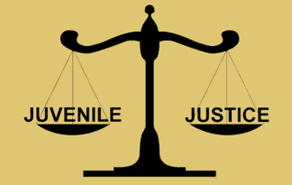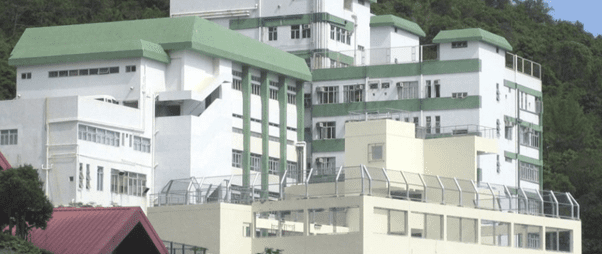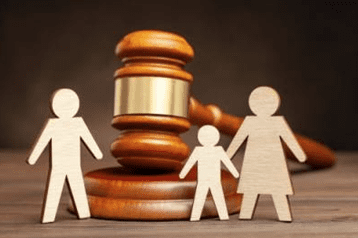Arrest of juveniles
03Feb2023What will happen if your children or child is arrested by the police?
An overview of the rights of juveniles under arrest.
Introduction
We often hear of arrest of youngsters in Hong Kong. In this article, we briefly discuss how the legal system processes those who are 16 years of age or under, from the time they are arrested by the police and how families should deal with this issue.
The meaning of juvenile
Children under 10 years of age are exempted from criminal responsibility.
A person under 14 years of age is considered to be a child.
By the Juvenile Offenders Ordinance, Cap.226, a person is considered to be a young person if aged between 14 and 16.
Juvenile refers to both a young person and a child.

The arrest of juveniles
According to Chapter 49 of the Police General Orders, when a juvenile is arrested, the police should make all reasonable efforts to inform the parents to attend the police station. If the police need to perform a search on a detained juvenile, the juvenile should be accompanied by a parent or appropriate adult during the search.
The presumption of bail for juveniles
There is a statutory presumption that an arrested juvenile should be given a police bail.
When the police are considering the bail for juveniles, they normally involve the parents or guardian of the juvenile and any lawyers instructed.
With police bail the juvenile will be released from police custody until the first court hearing date or until the police conclude their investigation and decide not to press charges against the bailee.
There are situations where the police do not grant bail to a juvenile. They are:
- the alleged crime is serious;
- it is in interest of the juvenile to be removed from an undesirable person; or
- release of the juvenile defeats justice.
If police bail is not granted the juvenile should be brought before the Juvenile Court by the police without delay. A lawyer can make a new application for a court ordered bail, often on terms such as the surrender of passport and a term that the juvenile should not contact specific people.
If the police decide to give bail to the juvenile, he/she may be asked to provide security, usually in the form of cash. The amount of cash will be an amount which in the opinion of the police, will secure the juvenile’s attendance at the next bail hearing or at the scheduled Court hearing. If the juvenile does not attend the money can be forfeited and an arrest warrant will be issued.
If the juvenile is refused bail, the juvenile is normally detained at the Tuen Mun Children and Juvenile Home.

Interviewing of a juvenile by the police
A juvenile should only be interviewed by the police in the presence of a parent or guardian, or “some person”, for example an older sibling, who is not a police officer and is of the same sex as the juvenile being interviewed.
The phrase “some person” is not clearly defined in the Rules and Directions for the Questioning of Suspects and the Taking of Statements. However, the spirit of the Rules and Directions is that the older individual should be someone who the juvenile trusts and who has sufficient character and intellect to look after the interests of the juvenile in this kind of situation. The absence of such a person at an interview is likely to be considered oppressive and any confession arising from the interview is likely to be held inadmissible.
Pre-arrest investigation
There are often cases where juveniles are contacted by the police to assist with their investigations without being arrested or being cautioned. One example is when a juvenile is involved in a fight at school and a party makes a complaint to the police. Although the police have not arrested the juvenile, it is crucial to understand that a criminal defence may begin well ahead of the arrest. An experienced solicitor can assist and protect the interests of the juvenile in the investigation.
Trial to be heard at the Juvenile Court
Other than homicide cases, charges against a juvenile should be heard at a Juvenile Court. The Juvenile Court is a law court with special authority and specifically responsible for the hearings or legal supervision of juvenile offenders. The Juvenile Court may also grant care or protection orders in respect of the juvenile.
The Juvenile Courts are situated at the Eastern, Kowloon City, West Kowloon, Fanling and Tuen Mun Magistrates’ Courts.

Difference between the Juvenile Court and an Adult Court
The Juvenile Court is different from the Adult Court. The Juvenile Court focuses heavily on the rehabilitation of the young offenders. The Juvenile Offenders Ordinance, Cap.226 makes it clear that no young person shall be sentenced to imprisonment if he/she can be suitably dealt with any other way. In summary, the goal of the Juvenile Court is to put the life of the juvenile back on the right track instead of punishing him/her.
Considering the above, juvenile hearings are heard in private. According to the Juvenile Offenders Ordinance, only the parties who are directly involved in the case, such as the defendant, legal representatives, officers and witnesses are allowed to sit at the Juvenile Court. News reporters may be allowed to sit in the Juvenile Court, but the Court has the right to exclude them if it is in the interest of the juvenile to do so. Further, the Juvenile Court does not normally reveal the identities and personal information of the offenders in the published judgments or reports.
If a juvenile is co-charged with another person who is over 16 years of age, the charge will be heard in an Adult Court because a Juvenile Court has no jurisdiction over defendants aged over 16. However, it is possible for the juvenile to be transferred back to the Juvenile Court for sentencing if in the interest of the juvenile to do so. The Juvenile Magistrates are specialised in juvenile cases, in that they are more experienced in communicating with, providing assistance to, and issuing the most appropriate sentence or order against the juvenile.
An alternative to court hearing: the Superintendent’s Caution
If a juvenile between the age of 10 and 18 has committed an offence and there is sufficient evidence to charge him/her, a Police Officer of the rank of Superintendent or above can exercise discretion to resolve the matter by way of administering a caution under the Police Superintendent’s Discretion Scheme. A Superintendent’s Caution means the police will not proceed to prosecute the juvenile. The juvenile will be supervised by the police for a period of two years or until he/she reaches the age of 18, whichever is earlier.
Factors to be considered by the Police in granting a Superintendent’s Caution:
- The evidence available is sufficient to support a prosecution;
- The offender voluntarily and unequivocally admits the offence;
- The offender and his/her parents or guardians agree to the cautioning;
- The nature, seriousness and prevalence of the offence;
- The offender’s previous criminal record; and
- The attitude of the complainant.
A Superintendent’s Caution is considered to be the best way of resolving a criminal matter involving a juvenile because he or she is able to keep a clear record and will not have to go through the prosecution process which may be lengthy and stressful.
Engaging a solicitor for a juvenile
A solicitor’s instructions on behalf of a juvenile will initially come from the parents or guardian. The arrangement of legal fees will be made with the parents or guardian. The solicitor should explain the engagement terms to the juvenile to make sure the juvenile understands how the solicitor will assist in the case.
Legal fees and duty
The solicitor’s primary duty is to safeguard the interests of the juvenile. There is usually no conflict of interest between the juvenile and the parents. If there is a conflict between the interests of the parents and the juvenile, the interests of the juvenile must prevail.
If you are or your child is facing a police investigation or an arrest, it is important to consult an experienced solicitor as soon as possible.
Mark Side and Teresa Lau
Please contact our Family department partners concerning child police investigations:
Joanne Brown
Partner | Email
Disclaimer: This publication is general in nature and is not intended to constitute legal advice. You should seek professional advice before taking any action in relation to the matters dealt with in this publication.
